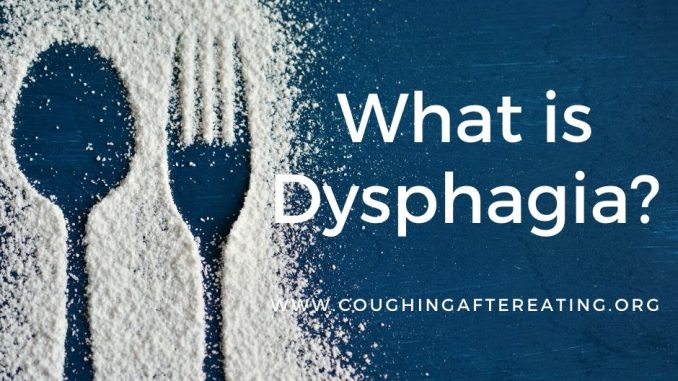
What is Dysphagia?
Dysphagia is a word derived from Greek. ‘Dys’ in greek means bad or disordered and ‘phag’ means eat. Thus literally, dysphagia means disorder in eating.
In medical language ‘Dysphagia’ is a term used to refer to ‘difficulty in swallowing’. In the medical field, in a broader sense, dysphagia may refer to the sign, symptom or even the condition of ‘difficulty in eating’.
Thus dysphagia basically suggests difficulty in moving solids or liquids from mouth into the stomach. Such difficulty can be due to a lack of pharyngeal sensation or a different inadequacy of the swallowing mechanism.
Dysphagia should not be confused with other conditions like Odynophagia or Globus that too make swallowing difficult. Odynophagia causes painful swallowing while Globus causes a sensation of a lump in the throat.
What happens if you do not treat dysphagia?
Sometimes, people may not be aware that they have dysphagia. This may delay or prevent proper diagnosis and treatment. A person having dysphagia may suffer from coughing while eating or coughing after eating or difficulty in swallowing.
If dysphagia is not treated, it may lead to pulmonary aspiration or aspiration pneumonia. This happens when food enters parts of respiratory system. Such food may carry bacteria into respiratory tract.
In some cases, dysphagia when not treated, may also lead to dehydration, malnutrition or renal failure.
Normally people cough and show signs of discomfort when food enters respiratory tract but some people neither cough nor show any such outward symptoms. Some doctors call this ‘silent aspiration’.
What are different types of Dysphagia?
Dysphagia in humans can be broadly classified into 4 types as below.
Oropharyngeal dysphagia is normally associated with anamolies in muscles, nerves or structure of oral cavity, pharynx and upper esophageal sphincter.
Esophageal and obstructive dysphagia arises from a problem in the body of esophagus, lower esophageal sphincter or the cardia of the stomach. Such condition usually results from mechanical causes or mobility problems.
Neuromuscular symptom complexes.
Functional dysphagia is when a person suffers from dysphagia but a diagnosis fails to find anything that is causing the condition.

Leave a Reply